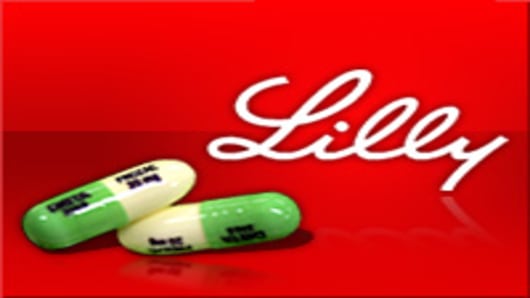If the stock closes down at least 4.46% today (as I write this it is off nearly 7%) Eli Lilly will suffer its worst one-day loss in more than four years, according to our resident statistical expert Robert Hum. If it were to close off more than 7.79%, Hum says it would be the stock's biggest one-day fall since Oct. 23, 2002--almost five years to the day.
After the closing bell yesterday the company put out a press release that said it was stopping patient enrollment in two small clinical trials for its experimental bloodthinner prasugrel.This drug was considered to be Lilly's most promising late-stage developmental drug and a potential billion-dollar-plus blockbuster. But beyond saying that it needed to amend the protocol of the studies it didn't offer any details about what exactly might be the problem--if, indeed, there is one.
But analysts and investors aren't waiting for an explanation. Many suspect that the drug might be so potent that it could be causing excessive bleeding in some patients. The results of Lilly's large prasugrel clinical trial are expected to be presented at the upcoming American Heart Association meeting on Nov. 4th. In the company's defense, one reason it might not be free to provide any more information is because it's under embargo by the AHA.


